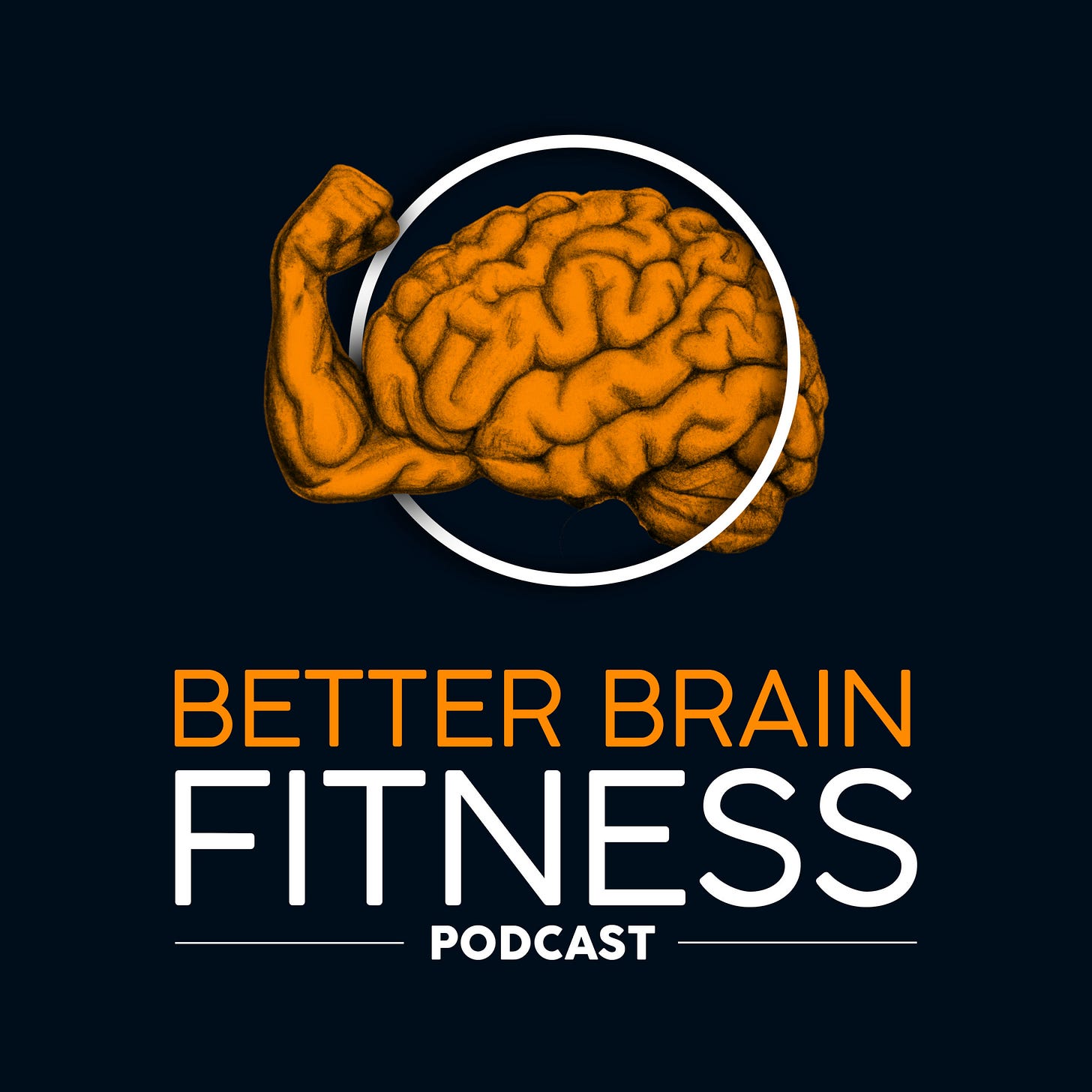Do young brains learn better?
Age and plastic potential, part 1.
While it remained a controversial claim until just a few decades ago, the idea that the adult brain is plastic is now widely embraced. If you’re reading this newsletter, you’re probably well aware of this.
For the sake of definition, “plasticity” (or “neuroplasticity”) refers to the brain’s ability to change itself in response to experience, typically in order to acquire new knowledge and skills.
Yet, by and large, it seems that the notion that the adult brain can’t change has been replaced by the notion that the adult brain can change some, but still not like a young one. This perception of diminished plastic potential with age has fueled the widespread conviction that childhood is the optimal period for acquiring complex skills and abilities like sports, music, and languages. That while it’s possible to learn such things as an adult, you’ll do so faster and more effectively when you’re a kid.
So is this true? Is the young brain more plastic? Is it more capable of the structural reorganization required to acquire new knowledge and skills?
A “Golden Age” For Learning?
There’s a common belief in the world of youth sports that the ages between 6 and 12 represent a “golden age” for the development of motor skills.
Where this belief originated is murky, as it didn’t arise from the scientific community. But it undoubtedly owes its proliferation and persistence to the conventional wisdom that children are superior learners, and furthermore that there are optimal windows for learning certain things.
The research doesn’t support it, though. One representative study, published in Frontiers of Psychology in 2020, set out to examine the “golden age” claim. In the study, they tested a group of 10-year-olds, 18-year-olds, and 40-year-olds on their ability to learn to throw darts with their non-dominant hand. According to the “golden age” claim, the 10-year-olds should learn the best.
Each group’s non-dominant-hand dart throwing skills were the same at the beginning of the study. After training (200 throws per day, with the same set of instructions), each group improved by similar amounts - though there was more variability, or inconsistency, in the throws of the 10-year-olds. Based on the results, the authors concluded that “the present study found no evidence that the 10-year-olds belonged to a golden age for motor learning.”
And this is consistent with what the research in this field has shown, namely that, by and large, the learning curves for novel skills are pretty much the same, regardless of age - provided the training is the same.
Healthy brains that receive the same training build the same capabilities, no matter how old that brain is.
As I’ve discussed elsewhere, declining cognitive stimulation over the typical lifespan appears to be the primary driver of age-related cognitive decline and dementia. Conversely, lifelong cognitive stimulation is vital for nurturing healthy brain tissue.
And activities that provide the most stimulation are those that provoke the most amount of plastic reorganization, or brain change, in response. Yet, the sorts of activities that stimulate the greatest amount of brain change are precisely the ones we’re inclined to avoid out of the belief that the window of opportunity has closed.
Now, I do agree that it sure seems like kids pick up things more readily. So what might give rise to that common perception? If it isn’t because their brain is more plastic, then what exactly is responsible? Those are questions we’ll explore in an upcoming issue.
If you know of anyone else who’d enjoy reading this issue, please feel free to share!
Brain Boosting Resources
In this section, I’ll provide some of my favorite recommended resources for improving brain health and function.
From the humanOS Research Desk: Does Air Quality Impact Chess Strategy??
And now a word from Ginny, head researcher at humanOS, with some fascinating research on an important factor in brain health you may not be aware of: indoor air quality.
The EPA has estimated that concentrations of certain recognized air pollutants can be 2-5 times higher in indoor environments than outdoors, because tiny particles tend to hang around and accumulate in enclosed spaces. And there's a pretty decent chance that this affects you.
When scientists installed air monitors in the homes of people working remotely, they found that fine particulate matter levels in the homes of every single participant exceeded air quality standards established by the EPA for a healthy work environment.
We've known for a long time that air quality affects brain health, and that pollution is linked to greater risk of neuro-degeneration. But newer research suggests that the air that you're breathing right now might influence your ability to think and reason. For example, a study that looked at healthy office workers in 43 different commercial buildings found that higher concentrations of fine particulate matter in their workspaces were associated with slower response times and reduced accuracy in cognitive tests that were administered while they were at work.
With that in mind, let's take a look at a study published a few weeks ago. To gain insight into how changes in indoor air quality could influence cognition, a team of researchers examined people performing a quintessential “brain game”: chess.
The scientists analyzed a large data set of more than 30,000 move choices made by 121 chess players who were participating in three official tournaments held in Germany. Each move was objectively evaluated by an AI–based chess engine.
Based on the readings of indoor air quality monitors, they determined that an increase in fine particulate matter of 10 micrograms per cubic meter led to a 2.1 percentage point increase in the probability of making a meaningful error. That is a 26.3% increase, relative to the average proportion of errors in the sample.
All told, the research indicates that poor indoor air quality compromises cognitive performance in the short term, and brain health over the long term.
Okay, so what to do about it? The good news is that while the quality of our outdoor air is largely out of our hands, the quality of our indoor air is not. If you wanna learn more, check out the humanOS Guide to Indoor Air Quality.
Product Recommendation: Indoor Air Quality Monitor
Speaking of indoor air quality, I recently began using this handy little indoor air quality monitor, and the results have been both illuminating and actionable!
Book Recommendation: “Daily Rituals: How Great Minds Make Time, Find Inspiration, and Get to Work”
“Benjamin Franklin took daily naked air baths and Toulouse-Lautrec painted in brothels. Edith Sitwell worked in bed, and George Gershwin composed at the piano in pajamas. Freud worked sixteen hours a day, but Gertrude Stein could never write for more than thirty minutes, and F. Scott Fitzgerald wrote in gin-fueled bursts - he believed alcohol was essential to his creative process.” (from the book description on Amazon).
“Daily Rituals” provides a brief glimpse into the daily routines of over 160 people who’ve been responsible for some of the most celebrated works of the human mind.
Besides being an entertaining and unique look into the lives of many well-known historical figures, I also find these accounts both inspiring and reassuring.
You won’t find optimizers with every second of their day carefully engineered to maximize creative output. You won’t find super-humans effortlessly penning one great work after another thanks to their genetic gift of genius.
But you will find ordinary people with their own idiosyncratic habits and routines simply making time for exploration and creation each and every day.
This Week On The Better Brain Fitness Podcast: “Dr. Tommy Wood’s Daily Routine”
Speaking of daily routines, in this week’s episode of The Better Brain Fitness podcast, we decided to explore what Dr. Tommy Wood does each and every day.
As you know, the Better Brain Fitness podcast is all about exploring the core principles of a lifestyle that promotes a healthy brain that functions at its best. Just like the aforementioned “Daily Rituals” book, learning how a single individual implements those principles can be both entertaining and enlightening (at least we hope so!).
Lastly, a quote from cognitive and computer scientist Marvin Minsky that concisely summarizes why we’ve failed to realize that the potential for genius exists in every brain:
“We're least aware of what our minds do best."
Josh






